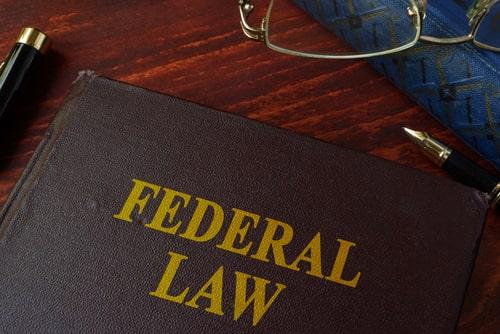Recent Blog Posts
Alternatives to Jail for Prescription Drug Charges in Texas
 Charges such as illegally distributing prescription drugs can potentially lead to years behind bars. However, for some nonviolent drug offenses, alternatives to incarceration may be possible for criminal defense attorneys to negotiate on a client’s behalf. While Texas law does impose mandatory minimum sentencing for certain drug crimes, opportunities exist pre-trial to argue for probation, diversion programs, or rehabilitation instead of jail time. A Texas lawyer can help you find alternatives for your charges.
Charges such as illegally distributing prescription drugs can potentially lead to years behind bars. However, for some nonviolent drug offenses, alternatives to incarceration may be possible for criminal defense attorneys to negotiate on a client’s behalf. While Texas law does impose mandatory minimum sentencing for certain drug crimes, opportunities exist pre-trial to argue for probation, diversion programs, or rehabilitation instead of jail time. A Texas lawyer can help you find alternatives for your charges.
Assessing Eligibility for Pre-Trial Intervention Programs
If a defendant has no prior felonies and the case details are favorable, their criminal defense lawyer can immediately request pre-trial intervention to divert the charges. Programs like drug court allow first-time offenders to avoid a conviction through supervised probation, frequent testing, outpatient rehab, and meeting other conditions. Graduates of the program can potentially have charges dismissed.
Protecting the Rights of Those Accused of Illegal Rx Drug Sales
 The illegal sale or distribution of prescription drugs is aggressively prosecuted. Charges like these can carry severe penalties, including substantial prison time. However, not everyone accused of prescription drug crimes is guilty as charged. A Texas lawyer can help you protect your rights during this time.
The illegal sale or distribution of prescription drugs is aggressively prosecuted. Charges like these can carry severe penalties, including substantial prison time. However, not everyone accused of prescription drug crimes is guilty as charged. A Texas lawyer can help you protect your rights during this time.
Questioning the Validity of the Charges
The first priority is determining if the charges are even valid. A lawyer will analyze whether proper procedures were followed during the arrest and evidence collection. Critical evidence may be excluded if any search or seizure violated Texas law. A defective warrant or lack of probable cause can undermine the entire case.
You and your attorney will need to review what exactly the prosecution aims to prove. If the facts do not clearly establish that a crime occurred, you file for dismissal. For illegally distributing prescription drugs, the prosecution must demonstrate intent to sell. Simply possessing certain medications does not automatically make someone a drug dealer under the law.
What Constitutes Federal Healthcare Fraud?
 Healthcare fraud is, unfortunately, common, costing taxpayers and patients billions annually. The federal government prosecutes healthcare fraud, with severe penalties for those convicted, including substantial fines, imprisonment, and exclusion from government programs.
Healthcare fraud is, unfortunately, common, costing taxpayers and patients billions annually. The federal government prosecutes healthcare fraud, with severe penalties for those convicted, including substantial fines, imprisonment, and exclusion from government programs.
If you find yourself in a situation with healthcare fraud, a Texas lawyer can help. You should be aware of the different types of federal medical fraud.
Billing for Services Never Performed
One of the most common forms of healthcare fraud involves billing for services that never happened. Examples of this type of fraud include billing Medicare for missed appointments that the patient did not attend, billing for fake procedures or tests that were never performed, and billing for services provided to non-existent “phantom” patients.
Red Flags Authorities Look for to Catch Money Launderers
 Texas has become a major hub for complex money laundering operations trying to hide illicit cash flows from drug trafficking, human smuggling, fraud schemes, and other crimes. Law enforcement agencies have become increasingly adept at spotting the red flags that expose these illicit money laundering fronts. A Texas lawyer can help if you are facing this type of charge.
Texas has become a major hub for complex money laundering operations trying to hide illicit cash flows from drug trafficking, human smuggling, fraud schemes, and other crimes. Law enforcement agencies have become increasingly adept at spotting the red flags that expose these illicit money laundering fronts. A Texas lawyer can help if you are facing this type of charge.
Structuring Deposits
One common tactic money launderers use in Texas is structuring cash deposits to avoid deposit reporting requirements. They purposefully break up large amounts of cash into smaller deposits below $10,000 to evade detection. Agents look for customers frequently depositing money just under the $10,000 threshold across different bank branches as a major red flag of structuring activity.
Funnel Account Activity
Money launderers in Texas use “funnel accounts” to make dirty money harder to track. Illicit funds from various sources are commingled into a single account before being transferred out in smaller amounts. Unusual money flows or transfers well beyond what a business would normally require signal potential laundering with these accounts.
When Does Drug Possession Cross into Trafficking in Federal Cases?
 In Texas, you can face severe federal drug trafficking charges for possessing substantial quantities of illegal substances like cocaine, heroin, and methamphetamine. But how much is required to trigger weightier trafficking accusations versus simple possession? The thresholds vary by drug type under federal law. A Texas lawyer can help you figure all of this out.
In Texas, you can face severe federal drug trafficking charges for possessing substantial quantities of illegal substances like cocaine, heroin, and methamphetamine. But how much is required to trigger weightier trafficking accusations versus simple possession? The thresholds vary by drug type under federal law. A Texas lawyer can help you figure all of this out.
Understanding Federal Weight Thresholds
Federal statutes establish cutoff weights for charging drug trafficking versus mere possession based on the controlled substance:
- Cocaine - 500 grams of powder form or just 5 grams if in crack cocaine form
- Heroin - 100 grams
- Methamphetamine - 50 grams
Creating Leniency in Texas Federal Sentencing
 Facing sentencing on federal criminal charges in Texas is daunting. However, an experienced Texas lawyer can help with strategies to argue for the most lenient sentence possible under federal guidelines. Advanced sentencing advocacy can make the difference between years in prison versus probation for your client.
Facing sentencing on federal criminal charges in Texas is daunting. However, an experienced Texas lawyer can help with strategies to argue for the most lenient sentence possible under federal guidelines. Advanced sentencing advocacy can make the difference between years in prison versus probation for your client.
Negotiating for Downward Departures
A key strategy is negotiating with prosecutors for a downward departure motion. Grounds like substantial assistance to authorities, limited participant role, and coercion may justify a reduced sentence. Your lawyer can leverage the defendant’s cooperation, evidence of minimal involvement, or unique circumstances to secure a departure request. This shifts sentencing leverage in your favor.
Fighting Federal Cocaine Charges in Texas Courts
 If you are facing federal cocaine charges, you need an attorney who will aggressively fight for your rights. An experienced Texas criminal defense lawyer knows how to build an effective defense against these allegations.
If you are facing federal cocaine charges, you need an attorney who will aggressively fight for your rights. An experienced Texas criminal defense lawyer knows how to build an effective defense against these allegations.
Was Your Stop and Search Handled Legally?
Your lawyer will first scrutinize if you were stopped and searched legally leading up to the charges.
-
Were you racially profiled?
-
Detained without probable cause?
-
Questioned without reading Miranda rights?
They can file motions to suppress evidence obtained illegally, which can profoundly damage the prosecution's case if granted.
Investigating the Backgrounds of Investigators
Your attorney will also thoroughly investigate all investigators' honesty and potential biases.
Top Federal Crimes Prosecuted in Texas Courts
 Texas has many federal criminal cases in its state courts partly due to its border with Mexico. In 2020 alone the index crime rate in the state was 2,666.7 crimes per 100,000 population. A Texas lawyer is vital to have on your side if you or a family member is experiencing a federal crime. Some common federal charges against defendants in Texas courts include the following.
Texas has many federal criminal cases in its state courts partly due to its border with Mexico. In 2020 alone the index crime rate in the state was 2,666.7 crimes per 100,000 population. A Texas lawyer is vital to have on your side if you or a family member is experiencing a federal crime. Some common federal charges against defendants in Texas courts include the following.
Immigration Offenses
The border with Mexico leads to numerous immigration charges like re-entry after deportation, smuggling, fraud, and illegal presence. Those living near the border often face prosecution. If convicted, fines, jail, or deportation can result. These allegations pose legal obstacles for defendants to overcome.
Drug Trafficking and Distribution
Texas’ location makes it a hub for drug trafficking between Mexico and the U.S. Charges involve large-scale trafficking of marijuana, cocaine, methamphetamine, and heroin. Convictions typically bring severe punishments like long mandatory minimum sentences under federal guidelines.
What is the Process for a Federal Drug Conspiracy Case in Texas?
 Being charged with involvement in a federal drug trafficking conspiracy in Texas kicks off a complex legal process, unlike state criminal cases. Here is an overview of the key stages and procedures those accused of federal drug conspiracy crimes in Texas face, along with how a Texas attorney can help.
Being charged with involvement in a federal drug trafficking conspiracy in Texas kicks off a complex legal process, unlike state criminal cases. Here is an overview of the key stages and procedures those accused of federal drug conspiracy crimes in Texas face, along with how a Texas attorney can help.
Indictment and Arrest
A federal grand jury will decide whether to issue an indictment formally charging alleged co-conspirators. Grand juries do not hear from the defense, only prosecutors. If indicted, federal marshals will arrest the defendants. Initial appearances before a magistrate will address bail and temporary representation by a public defender for those who cannot afford private counsel.
Pretrial Motions
Once defense counsel is retained or appointed, attorneys start filing pretrial motions seeking to suppress illegally obtained evidence or statements from the accused conspirators. Complex wiretap, search warrant, and Miranda issues often arise that skilled federal lawyers will pursue. Motions may also challenge procedural defects or request severing defendants into separate trials if defenses conflict.
How to Argue for Lower Federal Sentences in Texas
 Defendants facing federal criminal charges in Texas often face the prospect of stringent, lengthy prison sentences imposed under rigid federal sentencing guidelines. However, federal defense attorneys well-versed in guidelines and rules know how to argue for reduced sentences on behalf of their clients in appropriate cases. Here are some of the most important strategies used by adept lawyers to potentially lower federal sentences in Texas cases.
Defendants facing federal criminal charges in Texas often face the prospect of stringent, lengthy prison sentences imposed under rigid federal sentencing guidelines. However, federal defense attorneys well-versed in guidelines and rules know how to argue for reduced sentences on behalf of their clients in appropriate cases. Here are some of the most important strategies used by adept lawyers to potentially lower federal sentences in Texas cases.
Plea Bargain Agreements
Engaging in thorough pre-trial negotiations with federal prosecutors to secure favorable plea bargain agreements is a critical first step. Well-crafted plea deals will contain specific sentencing recommendations to the judge for a lower sentence than guidelines advise or than the defendant would likely receive if convicted at trial.

















